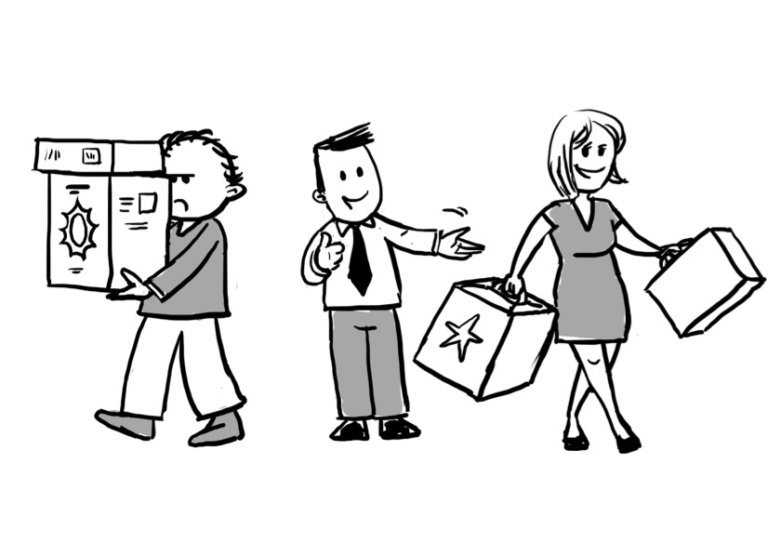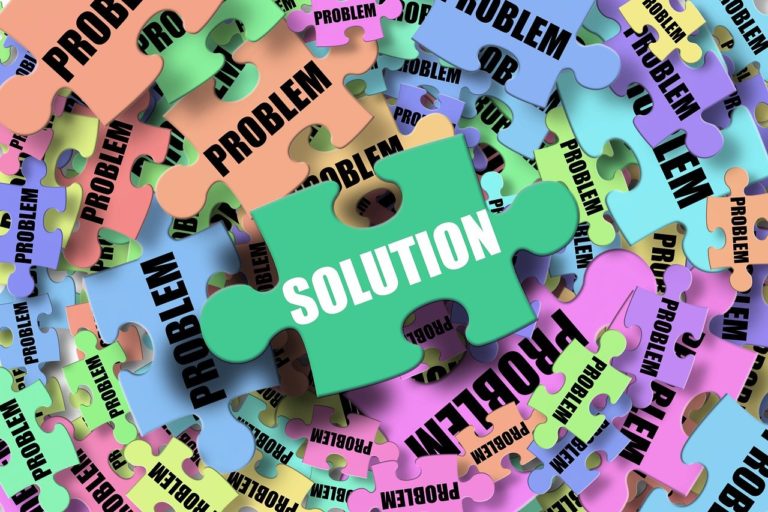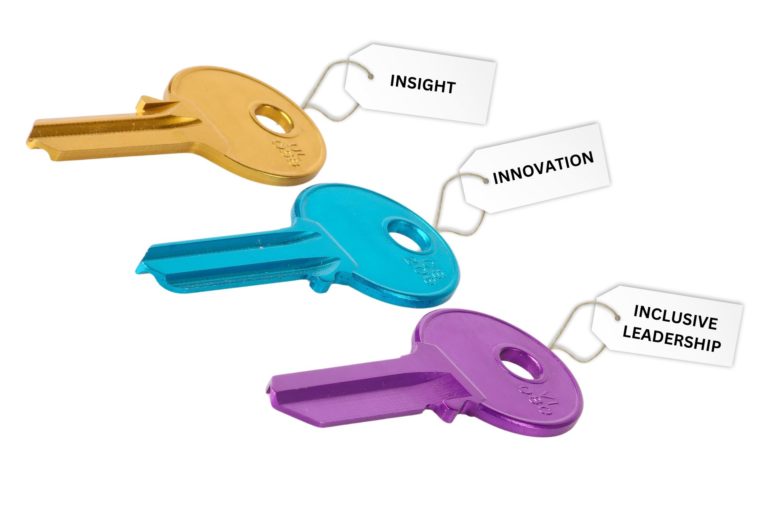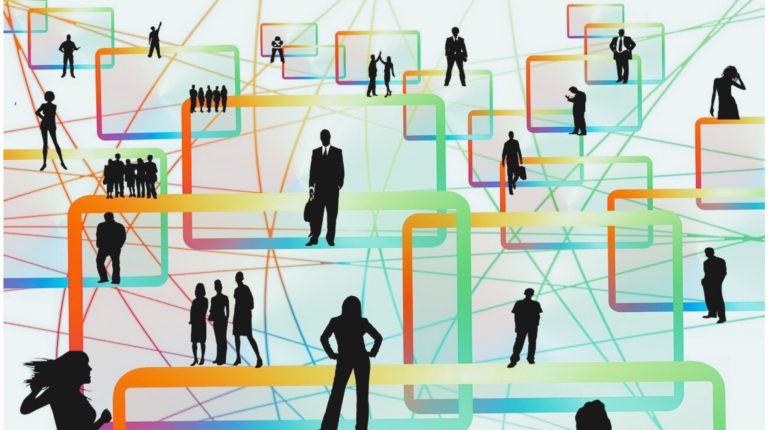Just like most entrepreneurs and business people, I go to my fair share of conferences. I believe that marketers can benefit from being regularly challenged by new thinking and ideas.
One that stays in my memory for many reasons, was an event I attended in San Jose, California. Some say California is the centre of internet marketing; the San Francisco area for technology and San Diego for marketing. I tend to agree after having recently attended events in both cities.
The conference that changed many of my views on modern marketing was one about how business people, not just marketers, can break through our self-limiting behaviours. It is this idea which prompted today’s post. How we marketers can relinquish our well-established thoughts and actions to make our businesses grow more profitably. If this is of interest to you too, then read on.
HEART-CENTERED VERSUS CUSTOMER-CENTRIC
The conference I attended in San Jose was a great opportunity for me to meet many other people from around the world. People who want to make their businesses more heart-centered. You know that I am a champion of customer centricity. I love to support companies that want to put their customers at the heart of their businesses.
So you might be wondering what the difference is between a customer-centric and a heart-centered business. After the conference, I would say that in my opinion, not much. I believe it is difficult to think customer first without it also involving the heart; at least, it should.
As we try to put our customers at the centre of our organisations, it is through a concern to satisfy and delight them. A heart-centred business would probably go even further to ensure that what they do also benefits non-customers, or, at least, doesn’t harm them.
Creating shared value has become a strong commitment of many of the leading global players in the consumer goods market. Reliance Jio, Merck and Bank of America lead the way according to the Fortune “Change the World” List.
If the topic inspires you then you might also be interested in reading an article on “Innovation and Creating Shared Value”, which I was invited to contribute to one of the first issues of the Journal of Creating Value. I will also be speaking at the 2nd Global Conference on Creating Value in New York later this year. So let me know if you too will be attending and we can meet up.
CUSTOMER FIRST EXAMPLES
But back to defining the types of business. Which is yours? Heart-centered or “just” customer-centric? Or are you not even there yet?
Do you think customer first but forget about those who are not yet your customers? That’s a dangerous thing to do as you may be limiting your brand’s potential. Here are a few current habits that some companies have, which show how customer centric they are – or not:
- Asking credit card details for a “free” offer. This information would only be of use to charge the client. It is a “trick” often employed by companies that are not customer centric. Those that are would only ask for such information once the customer is committed to purchasing the offer.
- Requiring full details on a contact form when the customer just wants to ask a question or download something. This information rarely provides value to the customer and is a real turn-off for many. Customer-centric businesses avoid asking more information than they need for immediate action. For them, building a strong relationship with their customer is more important; the additional details can be gathered as the relationship develops.
- Offering helpful suggestions of other products or services that may be of interest when a customer buys something. Yes, this does benefit the company too if the customer buys additional offers, but a win-win service offer can be customer-centric too. These recommendations use a technique called affinity analysis (sometimes called basket analysis) and although Amazon wasn’t the first to use it, they are by far the most well-known marketers to do so.
- Providing positive experiences the customer hasn’t paid for and doesn’t expect. This can be upgraded products or shipping, samples or complementary products or services included with their purchase. This benefits the customer by adding an element of positive emotional connection to the business. It also benefits the business as it can lead to a better company image, increased sales and greater loyalty.
FUTURE SCENARIOS
During my US trip, I caught up with a few of C3Centricity’s major partners in California. One of them, SciFutures, in Burbank, gave me my own experience of the future in a hands-on way, which was awesome!
During my last visit a few years earlier, they let my try out the Oculus Rift VR glasses. While it was interesting, the stilted imagery did not enable me to fully embrace the new world I was watching. It was of a roller coaster they had warned would make me sick – which of course it didn’t! Not only did I not fully engage with the scenes shown, I was underwhelmed by the potential of using the experience for marketers.
Fast forward to just a few years later and I was blown away by the HTC Vive and Amazon Echo / Alexa experiences they gave me. (I am speaking about several years ago now) The HTC glasses enabled me to integrate into a world of endless possibilities. They invited me to become an artist. And although I am not very creative, this tool enabled me to create incredible 3D images which I could view from every angle.
The Amazon Echo / Alexa unit, which is the first step towards a smarter home that I would certainly like to make, sat quietly on the shelf until an order was issued. “She” was an always-on assistant that I couldn’t wait to own. (I still don’t have one and yet me less “techie” brother does!)
She could estimate the drive time to my next appointment – which is vital when battling the impossibly heavy traffic in Los Angeles – or play a specific song or add an item to my shopping list. This promised a vocal, hands-off experience I wanted.
But my visit wasn’t just to try out the latest gadgets, although I admit they were fun experiences. We also discussed SciFutures’ work with major multinationals. They were developing and more importantly, showing, the possible future developments of the home, the financial sector and multiple other industries. Their unique demonstration of the future remain ahead of all the other trend-following, scenario planning agencies, even today!
I am always living in / dreaming about the future, so you can imagine how exciting my discussions with them were. (If you are in need of some new perspectives on your own industry, in order to be better prepared in this fast-changing world, then let me know. We can start creating an inspiring and exciting future scenario for your business)
SELF-LIMITING THOUGHTS AND BEHAVIOURS
At the beginning of this article, I said that I had been inspired by an event to review the self-limiting thoughts and behaviours that slow our progress and that of our businesses. I therefore, want to end with a list of them, which I developed during the conference and in the days following it. I would love it if you would add your own ideas in the comments below.
Beliefs are created out of our own, personal experiences and we rarely realise that some of them are not truths. Tony Robbins said that “Beliefs have the power to create and the power to destroy. Human beings have the awesome ability to take any experience of their lives and create a meaning that disempowers them or one that can literally save their lives.” While reviewing the following list, I suggest we dwell on our own thoughts and behaviours and make 2019 the year we make changes that will empower us. Both we and our businesses will flourish if we do.
- The word “can’t” is far too often used these days, when in fact we most likely mean “won’t make the time” or “aren’t interested“. We should be more honest with both ourselves and our co-workers. Explaining our reasons for our behaviour or lack of enthusiasm is valuable information for future exchanges and learning. “Honesty is the best policy,” said Benjamin Franklin more than three hundred years ago and yet we have still not learned the lesson!
- The word “should” often precedes the use of the word “can’t”. For example “I should do that but I can’t find the energy”. Again we need to be honest in admitting the real reasons behind both why we “should” do something and why we won’t. This will also lead to a better self-awareness and understanding.
- We love to give rather than to receive. We love to provide support and help others, but hate asking for it ourselves. This is a crazy situation that most of us find ourselves in more often than we would like to admit. We like others to be indebted to us, as it gives us a (false) feeling of power. Keep this in mind and endeavour to make your life one of balance; to give and receive.
- Shakespeare said it best in his play “As you like it”, Act II, Scene VII: “All the world’s a stage, And all the men and women merely players” What are you playing at? Relationships are built on trust and authenticity, both in the personal and professional circles. Are you or your brand pretending to be someone (thing) you are not, or to know something you don’t? If so, the stress of being “found out” will take its toll eventually, one way or the other. Being our authentic selves is the only way to exp and, grow and flourish. The same is true for brands.
- “Procrastination is the thief of time” is a mid-18th century proverb which means that if you delay doing something, it will almost certainly take longer to complete later on. The best solutions to procrastination include making lists, breaking down large or unattractive tasks into smaller, more achievable steps, and making the work time-limited. Making progress, however small, is better than none at all.
- Often one of the reasons for procrastination is perfectionism. We set such impossibly high standards that we know we’ll not meet, even before trying – so we don’t try. Life is for learning and as I said previously, any progress is better than no progress. Imperfection is human; embrace your humanness and learn from your failures. Edison is quoted as saying “I have not failed, I have just found 10,000 ways that don’t work”. So ask yourself: “Are you learning to fail or failing to learn?” Hopefully, it’s the former!
These are just a few of the many self-limiting thoughts and behaviours that many of us, including myself, have. They make our lives more difficult than they need to be. I was motivated by the conference I attended. I hope that my sharing these ideas has inspired you too to change. But without the need for the travel and resource investments I myself made!
My final comment on self-limiting thoughts and behaviours is a quote from that conference; “Fear is the only thing that gets smaller as we run towards it.” Marketers, are you ready to run towards your own fears and succeed in this awesomely changing world of possibilities?
If you’d like to read more on this topic then I would highly recommend you follow Steve Aitchison, as well as read a wonderful guest post there by Kathryn Sandford called “ 3 Strategies to master the self-limiting beliefs that are holding you back in life.” Enjoy!
Please share your own ideas and inspiring quotes below. Let’s support each other to be more authentic.
I regularly work with clients to help them be more intuitive in their marketing. This can be through keynotes, meetings, talks and training. Find out more on our website and then contact me here:
https://c3centricity.com/contact
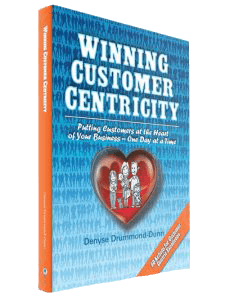 This post includes some concepts from my book Winning Customer Centricity.
This post includes some concepts from my book Winning Customer Centricity.
It is available in Hardback, Paperback, EBook and AudioBook formats. You can buy a copy from our website here, as well as on Amazon, Barnes and Noble, iBook, iTunes or in any good bookstore.
This post is an update of one which first appeared on C3Centricity in April 2016. See the original post here.


